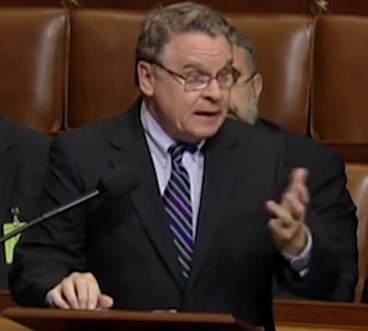Polish Solidarity Trade Union – 25th Anniversary
Today we continue celebrating the 25th Anniversary of Solidarity and in particular, the bravery, tenacity and innate goodness of Nobel Peace Prize Laureate Lech Walesa.
It is especially timely to host the former President owing to yesterday’s stunning election results that have ushered Solidarity’s ideological soulmates back into power. Projections suggest that the Law and Justice Party got almost 28% of the vote and the Civil Platform gained 24%.
Some time ago, I read Lech Walesa’s powerful and riveting autobiography, “A Way of Hope.” Filled with insight and brutally honest, the book walks the reader through a series of volatile events—personal and public—that have literally transformed the world.
In the book, we get a glimpse into Lech Walesa’s deep faith—and the role his beloved mother, and her Catholic beliefs had on him; “Neighbors came to our house to say the rosary.” he tells us in the book. The book is filled with remembrances of family—and his love for his wife.
On leadership he tells us:
I’ve never wished or prepared for a leadership role: paradoxically, it’s because I never really wanted it, absorbed as I was by quite different concerns, different problems which needed solving, that I found myself out in front, leading the others—“leading the flock,” I call it with a smile.
He tells us of the strike of 1970 “All we wanted was to free our fellow workers, we wanted no violence.” And that his worst fears were realized: “Poles had fired against Poles.”
In the chapter “The Strike and the August Agreement” he tells us how the movement had matured:
Until then I had been talking, bluffing, playing “on credit.” Although we pretended to be holding all the high cards, our opponents knew our game inside out, they’d been playing against us for years! But what they didn’t know was the nature of our very last card: the determination that had been maturing for ten years now, since the death of three of our colleagues right in front of the second entrance to the shipyard.
When His Holiness Pope John Paul II made his historic trip to his homeland in 1979, he counseled his flock and his country men and women, “Be Not Afraid.” But Lech Walesa gave us additional insight into how Solidarity and Pope John Paul II were “inextricably bound together” and how it almost ended in 1981.
It was in Japan that we heard of the dramatic attempt on the Pope’s life. The news broke in the middle of the night May 13-14, 1981. We were in my hotel room in Nagasaki, discussing the events of the day, and our visit the next day to the museum set up in memory of the victims of the atomic bomb. The first news flash was terrifying: the Pope was dead! The next news flash retracted it: no, the Pope was still alive, he was fighting for his life. I was overcome by a feeling of immense loneliness; the whole world seemed to have turned upside down; with our lodestar gone, some of us were wandering in a wilderness with out hope. The tragedy of the Polish Pope was also the tragedy of Poland and of Solidarity: they were inextricably bound together; this was just the beginning. Then the news changed, became less alarming; there was still hope.
In his chapter “Martial Law,” Lech Walesa tells us how they decided that if the militia invaded the shipyard during the night, they decided on passive resistance: “Our greatest strength is precisely our weakness—our living bodies and empty hands confronting tanks and nightsticks.”
His wife Danuta writes in the book how she was discouraged when he was locked up during marital law but “he seemed rather pleasant, …we had to be dignified about it all, because even in a place like this, we still had the upper hand; we, not they, were making history.”
By 1989, Solidarity leaders sat across the table from Wojtech Jaruzelski, the same General who had imposed martial law in 1981. And they negotiated what had seemed to most of the world impossible: the peaceful transition from communism to free and fair elections. In August of 1989, less than a decade after the Gdansk shipyard strikes that gave birth to Solidarity, Poland would elect its first non-communist Prime Minister since the communist takeover.
Finally, Lech Walesa tells us in the book that in his school years “history was my weak point.”
But, I am here to say to you, Mr. Walesa, studying history does not matter when you are the one who makes history by bringing freedom, respect for human rights, and enduring democracy not only to your own country, but the entire region as well.




